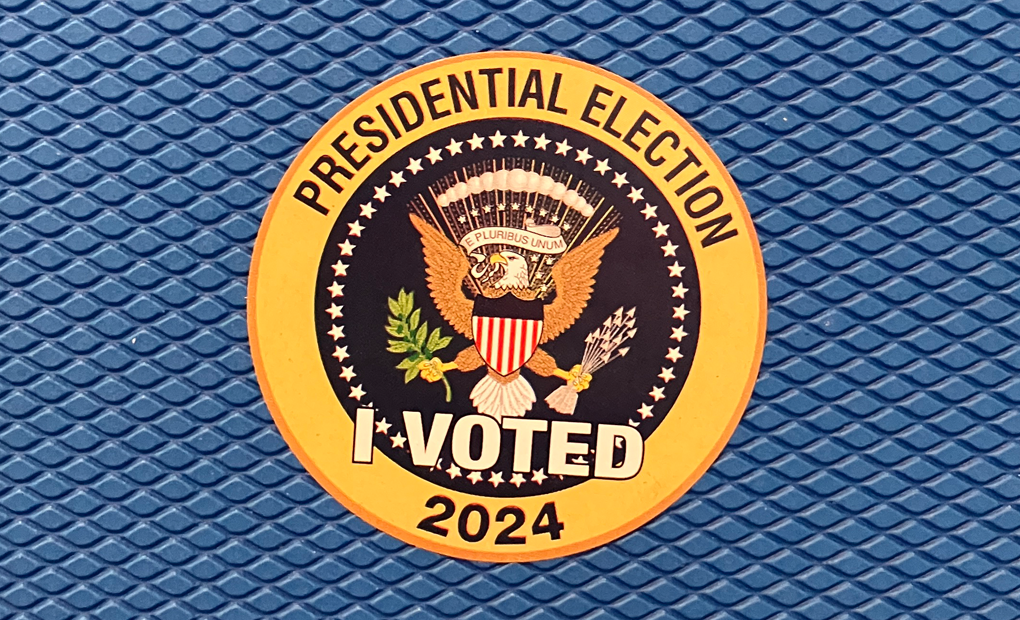Ph: 404.844.4130
Fax: 404.844.4135
3212 Northlake Pkwy #450906
Atlanta, GA 31145

With the arrival of early in-person voting in many states, including Georgia, for the November 5th Presidential election, we wanted to give Employers a quick reminder of how the election season may impact your workplace.
Under the National Labor Relations Act (NLRA), employees enjoy several important
rights even in non-union workplaces. These include that employees are entitled to engage in protected concerted activities, which means they can discuss workplace issues, advocate for improvements, and organize collectively without fear of retaliation. This includes the right to communicate about wages, working conditions, and other employment-related matters, as well as the ability to express concerns about employer practices. The NLRA also protects employees from unfair labor practices, ensuring they can exercise their rights freely, whether or not they choose to join a union.
During a federal election, the NLRA specifically imposes several restrictions on employers to protect employees’ rights to participate in the electoral process. Employers are prohibited from coercing or influencing employees regarding their voting choices, which includes expressing preferences for specific candidates or political parties in a way that could intimidate or manipulate workers. Additionally, they cannot discipline or retaliate against employees for engaging in political activities, such as campaigning or discussing political issues, during non-working hours. Employers are also restricted from holding mandatory meetings that promote a particular political agenda, as these could create a “captive audience” scenario. Overall, the NLRA aims to ensure that employees can exercise their voting rights freely and without undue pressure from their employers. So, the following are strictly prohibited: Coercing employees to vote in a particular manner, pressuring employees to attend political events, and commenting on an employees’ political views or activities outside of work.
Despite the protections afforded by the NLRA, employers retain certain rights during a federal election. They can communicate their views on political issues and candidates, provided they do so in a way that does not coerce or intimidate employees. Employers may also organize informational meetings about the election process, encourage employees to register and vote, and provide time off for employees to participate in voting, as long as this is done in compliance with applicable laws. Additionally, they can share general information about the impact of election outcomes on the business or industry, fostering an environment of open dialogue while respecting employees’ rights to make their own choices without pressure.
An Employer is permitted to take the following actions during an election period, as long as they are applied consistently and adhere to NLRA guidelines:
For employers with employees in Georgia, please be aware that effective in 2023, Georgia law requires employers to give employees up to two hours of leave time to vote either on election day or an early voting day. O.C.G.A. §21-2-404 is the law affording employees time off to vote. It provides:
Each employee in this state shall, upon reasonable notice to his or her employer, be permitted by his or her employer to take any necessary time off from his or her employment to vote in any municipal, county, state, or federal political party primary or election for which such employee is qualified and registered to vote either on one of the days that are designated for advance in-person voting or on the day on which such primary or election is held; provided, however, that such necessary time off shall not exceed two hours. The employer may specify the hours during which the employee may absent himself or herself as provided in this Code section.
The time off can be without pay, although if an employee requests to use PTO the employee has accrued, then it must be paid. If you have any questions about your rights or obligations during this election season, feel free to call Jay (404.844.4132) or Debra (404.844.4131). You should not take any of the following actions without consulting with your attorney at Schwartz Rollins:
If you have any questions about what steps you need to take to get ready for the implementation of the new rule, feel free to contact our attorneys, Jay Rollins or Debra Schwartz by calling 404.844.4130.
